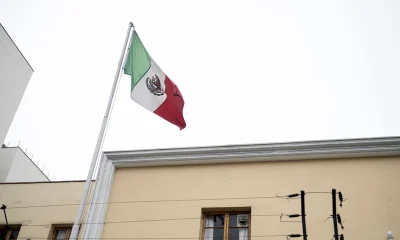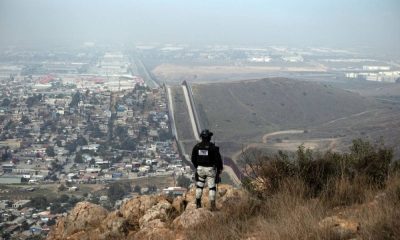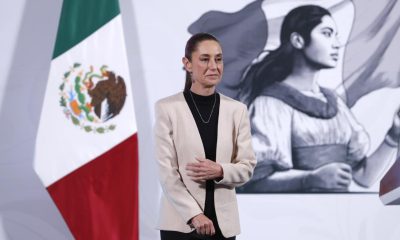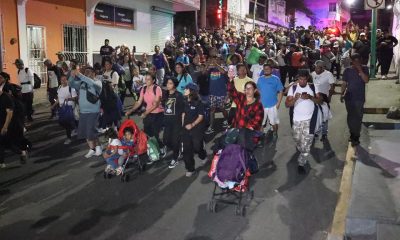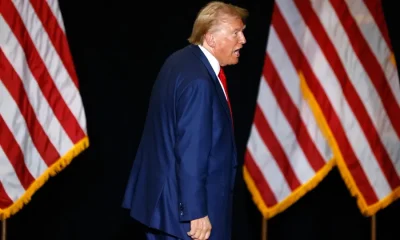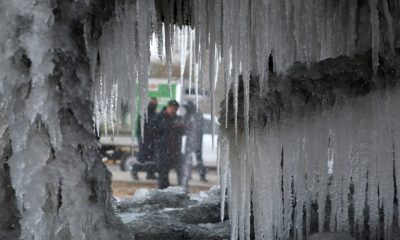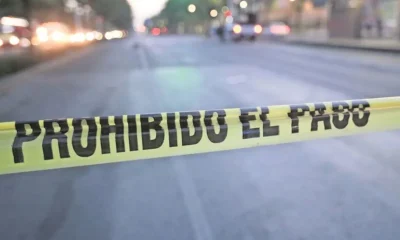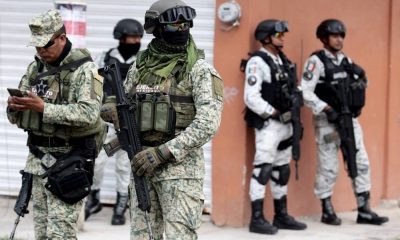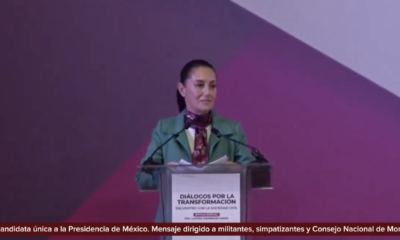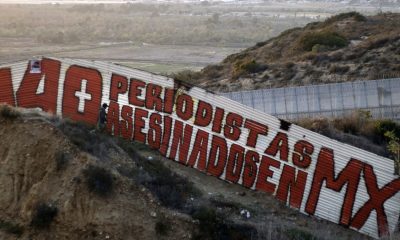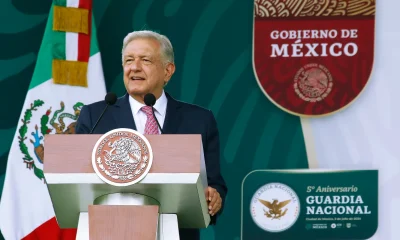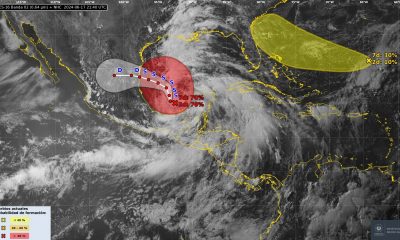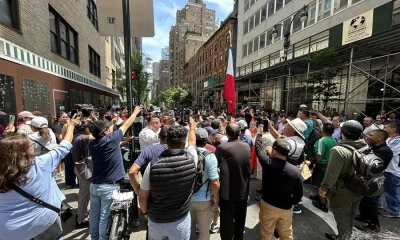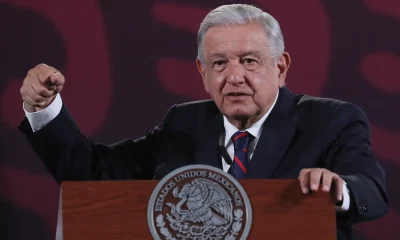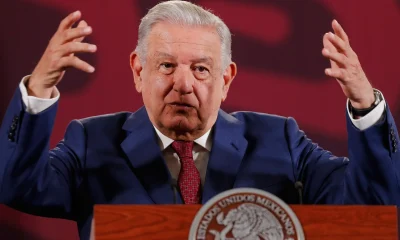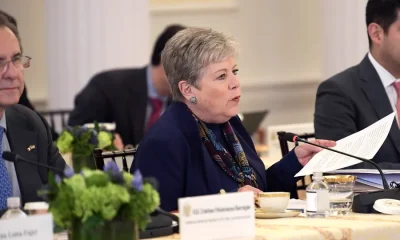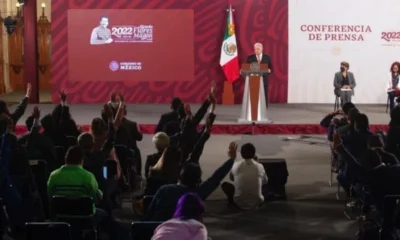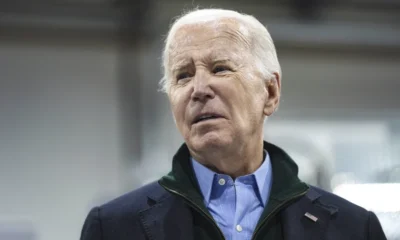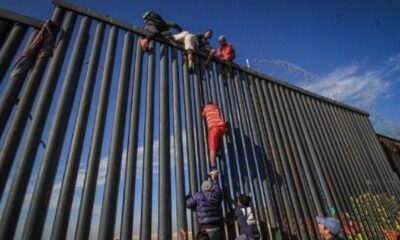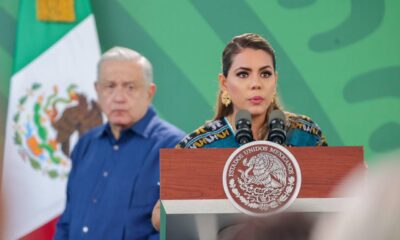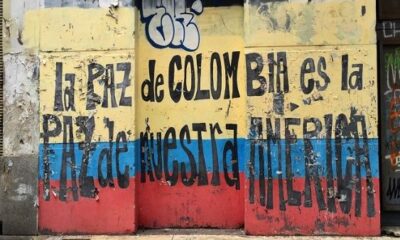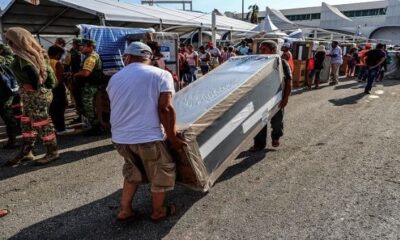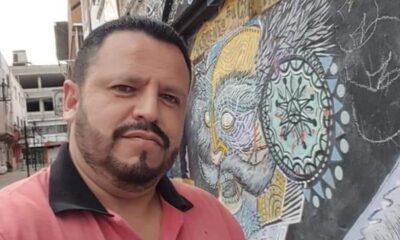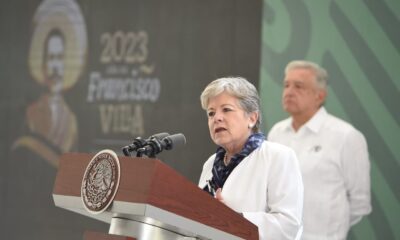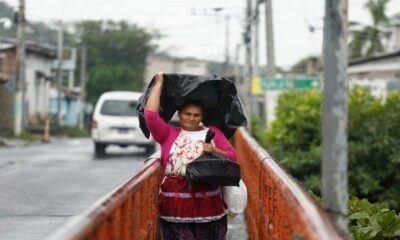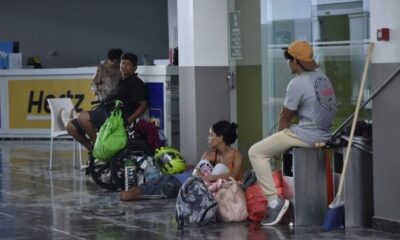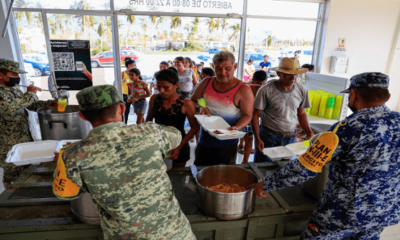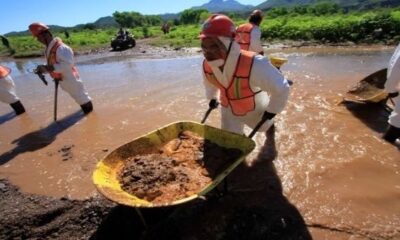International
Displaced by the crime in southern Mexico threaten to boycott the elections
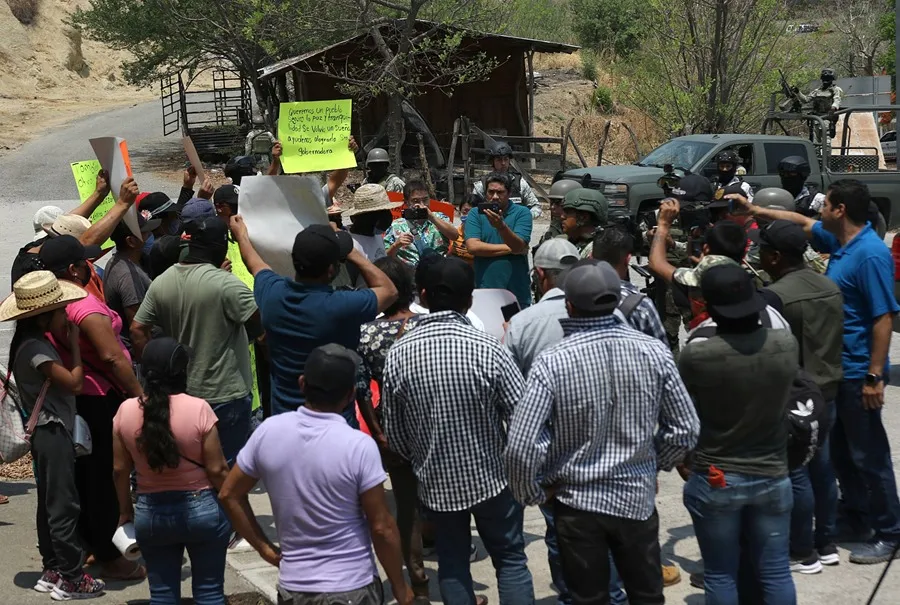
Inhabitants displaced by organized crime in the Sierra de Guerrero, a southern state of Mexico that faces a wave of violence, protested this Thursday to demand security and warned of a boycott in Sunday’s elections.
The group of people from the municipality of Leonardo Bravo was placed with banners at the entrance to the municipal capital, Chichihualco, where they will block the interstate road, if they do not have a solution before the elections.
“We want a solution now, before Sunday, because, if not, there are no votes on Sunday,” said one of the protesters with a half-covered face.
The protesters belong to about 20 communities in the mountains, with between four and six years of having left their villages due to the threats of criminal groups.
In addition, they denounced that the criminal group of Los Tlacos looted or burned their homes, appropriated their land and stole their animals.
The demonstrators asked for help from the federal government and the state of Guerrero to recover his life, so they requested the permanent installation of two Army operations bases in El Carrizal and Filo de Caballos, for which they demanded the intervention of the governor, Evelyn Salgado.
They also demanded a hearing with the municipal president, Saúl Villa Adame, whom they have not seen in the area for a year. They accused him of not attending to them.
Chichihualco is a constant scene of armed clashes for the control of that corridor in Mexico, where at the beginning of the month a group of self-defense from the municipality of Heliodoro Castillo arrived, linked to Los Tlacos, although after protests they left the place.
The protest reflects the exacerbation of violence in the midst of the elections in Guerrero, where this Wednesday Alfredo Cabrera, opposition candidate for the mayor of Coyuca de Benítez, was murdered in the last hours of the campaign, which aroused a condemnation of the Electoral Mission of the Organization of American States (OAS).
The standard-bearer of the National Action Party (PAN), the Institutional Revolutionary (PRI) and the Democratic Revolution (PRD) alliance was shot twice in the head as he came down from the temple where he had offered his closing speech.
In addition, the demonstration takes place in the midst of a national upturn in homicides, which rose by 7.37% in April to 2,622, the deadliest month of the year, in the midst of political violence that has left dozens of political murders.
More than 98 million voters are called to renew more than 20,000 positions, including the presidency, the 128 senators and the 500 deputies.
Eight state governments and the Head of Government of Mexico City and its 16 mayor’s offices will also be renewed.
Likewise, 1,098 local councils, 1,802 municipal presidencies, 1,975 syndicates, 204 councils, 14,560 councils, 22 municipal board presidencies, 88 municipal board councils, 22 municipal board unions and 299 community presidencies.
International
U.S. Senate Rejects Budget, Bringing Government Closer to Shutdown Amid DHS Dispute

The U.S. Senate voted on Thursday against a budget proposal in a move aimed at pressuring changes at the Department of Homeland Security (DHS), following the killing of two civilians during a deployment of immigration agents in Minneapolis.
All Senate Democrats and seven Republican lawmakers voted against the bill, which requires 60 votes to advance, pushing the country closer to a partial government shutdown that would cut funding for several agencies, including the Pentagon and the Department of Health.
The rejection came as Senate leaders and the White House continue negotiations on a separate funding package for DHS that would allow reforms to the agency. Proposed measures include banning Immigration and Customs Enforcement (ICE) agents from wearing face coverings and requiring them to use body-worn cameras during operations.
The vote took place just hours after President Donald Trump said he was “close” to reaching an agreement with Democrats and did not believe the federal government would face another shutdown, following last year’s record stoppage.
“I don’t think the Democrats want a shutdown either, so we’ll work in a bipartisan way to avoid it. Hopefully, there will be no government shutdown. We’re working on that right now,” Trump said during a Cabinet meeting at the White House.
International
Trump Says Putin Agreed to One-Week Halt in Attacks on Ukraine Amid Extreme Cold

U.S. President Donald Trump said on Thursday that he secured a commitment from Russian President Vladimir Putinto halt attacks against Ukraine for one week, citing extreme weather conditions affecting the region.
“Because of the extreme cold (…) I personally asked Putin not to attack Kyiv or other cities and towns for a week. And he agreed. He was very pleasant,” Trump said during a Cabinet meeting broadcast by the White House.
Trump acknowledged that several advisers had questioned the decision to make the call.
“A lot of people told me not to waste the call because they wouldn’t agree. And he accepted. And we’re very happy they did, because they don’t need missiles hitting their towns and cities,” the president said.
According to Trump, Ukrainian authorities reacted with surprise to the announcement but welcomed the possibility of a temporary ceasefire.
“It’s extraordinarily cold, record cold (…) They say they’ve never experienced cold like this,” he added.
Ukrainian President Volodymyr Zelensky later commented on the announcement, expressing hope that the agreement would be honored.
International
Storm Kristin Kills Five in Portugal, Leaves Nearly 500,000 Without Power

Storm Kristin, which battered Portugal with heavy rain and strong winds early Wednesday, has left at least five people dead, while nearly half a million residents remained without electricity as of Thursday, according to updated figures from authorities.
The revised death toll was confirmed to AFP by a spokesperson for the National Emergency and Civil Protection Authority (ANPEC). On Wednesday, the agency had reported four fatalities.
Meanwhile, E-Redes, the country’s electricity distribution network operator, said that around 450,000 customers were still without power, particularly in central Portugal.
Emergency services responded to approximately 1,500 incidents between midnight and 8:00 a.m. local time on Wednesday, as the storm caused widespread disruptions.
The Portuguese government described Kristin as an “extreme weather event” that inflicted significant damage across several regions of the country. At the height of the storm, as many as 850,000 households and institutions lost electricity during the early hours of Wednesday.
Several municipalities ordered the closure of schools, many of which remained shut on Thursday due to ongoing adverse conditions.
Ricardo Costa, regional deputy commander of the Leiria Fire Brigade, said residents continue to seek assistance as rainfall persists.
“Even though the rain is not extremely intense, it is causing extensive damage to homes,” he noted.
In Figueira da Foz, a coastal city in central Portugal, strong winds toppled a giant Ferris wheel, underscoring the severity of the storm.
-

 Central America4 days ago
Central America4 days agoGuatemala seizes over a ton of cocaine hidden in flour at Pacific port
-

 International4 days ago
International4 days agoHistoric snowstorm paralyzes Toronto after 60 centimeters of snow
-

 Central America3 days ago
Central America3 days agoGuatemala Police Arrest Prison Guard Caught in the Act of Extortion
-

 Central America3 days ago
Central America3 days agoHonduras swears in conservative president Asfura after disputed election
-

 Central America3 days ago
Central America3 days agoBukele leads public trust rankings as UCA survey highlights gains in security
-

 International4 days ago
International4 days agoSpain’s irregular migrant population rises to 840,000, study finds
-

 International2 days ago
International2 days agoFootball Fan Killed in Clashes After Colombian League Match
-

 International3 days ago
International3 days agoWinter Storm Fern Leaves 30 Dead and Over One Million Without Power Across the U.S.
-

 Central America2 days ago
Central America2 days agoGuatemala President Says Starlink Terminal Found Inside Prison
-

 Sin categoría3 days ago
Sin categoría3 days agoEight Killed in Series of Armed Attacks in Ecuador’s Manabí Province
-

 International3 days ago
International3 days agoDoomsday clock moves to 85 seconds before midnight amid rising global risks
-

 International4 days ago
International4 days agoRights group says nearly 6,000 killed in Iran protest crackdown
-

 International3 days ago
International3 days agoSpain approves plan to regularize up to 500,000 migrants in Historic Shift
-

 Sin categoría3 days ago
Sin categoría3 days agoEl Salvador Launches Fourth Year of Ocean Mission to Protect Marine Ecosystems
-

 International2 days ago
International2 days agoRubio Says U.S. Could Participate in Follow-Up Russia-Ukraine Talks
-

 International2 days ago
International2 days agoMissing Spanish Sailor Rescued After 11 Days Adrift in Mediterranean
-

 International4 days ago
International4 days agoVenezuela frees at least 80 political prisoners, NGO says
-

 International4 days ago
International4 days agoEU launches new probe into X over AI-generated fake nude images
-

 International17 hours ago
International17 hours agoU.S. Senate Rejects Budget, Bringing Government Closer to Shutdown Amid DHS Dispute
-

 International4 days ago
International4 days agoSevere winter storm grips U.S., leaves multiple dead as extreme cold persists
-

 International4 days ago
International4 days agoFrance debates ban on social media for children under 15
-

 International17 hours ago
International17 hours agoStorm Kristin Kills Five in Portugal, Leaves Nearly 500,000 Without Power
-

 International17 hours ago
International17 hours agoMan Arrested After Vehicle Crashes Into Jewish Institution in Brooklyn
-

 International17 hours ago
International17 hours agoTrump Says Putin Agreed to One-Week Halt in Attacks on Ukraine Amid Extreme Cold

























